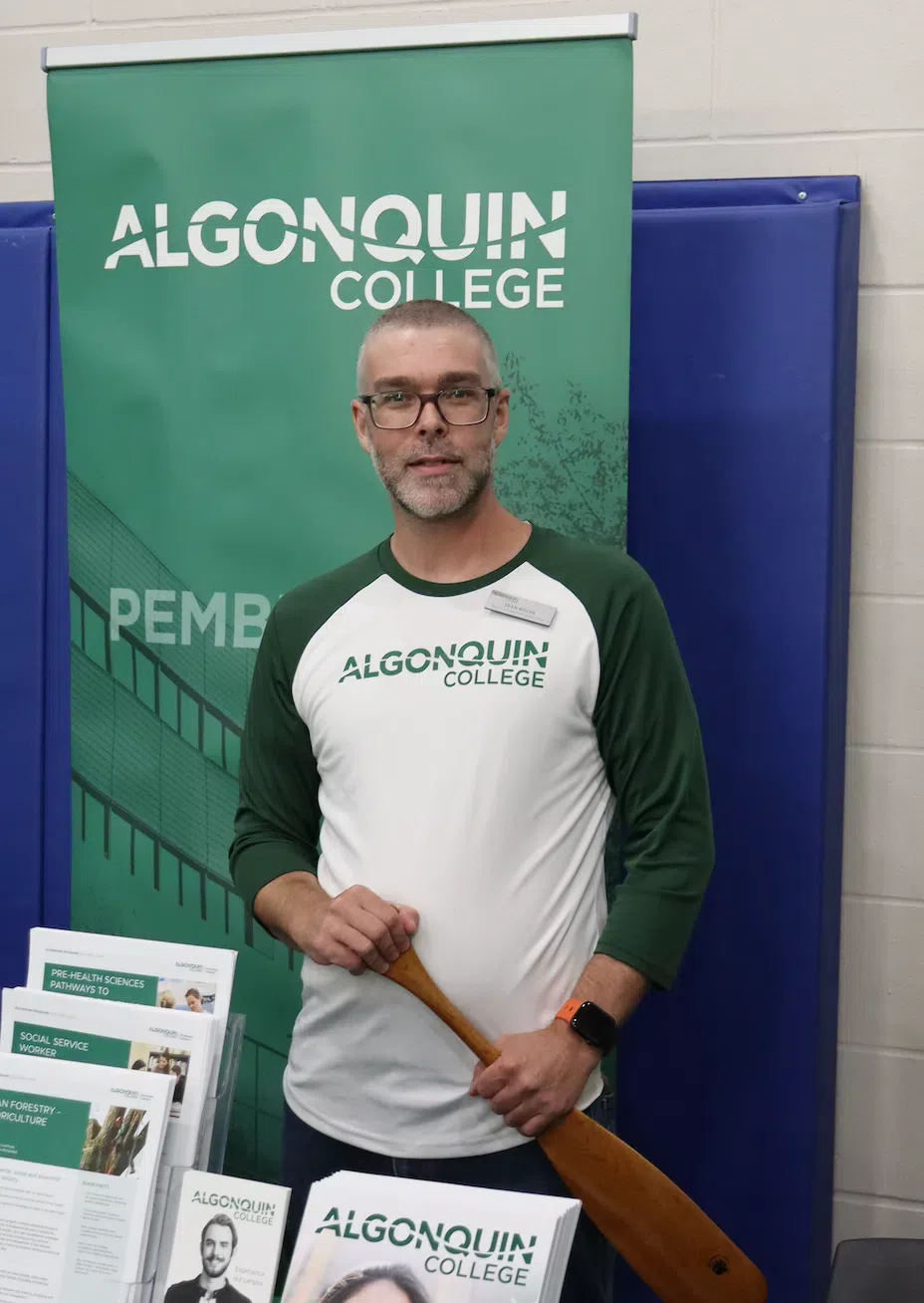
On August 1, 1981, the very first video aired on MTV — a song by The Buggles called “Video Killed the Radio Star.” Just how prophetic that title was remains widely debated; however, it can’t be denied that the dawn of the video age marked the beginning of what some say will be the ultimate end of terrestrial radio.
On Monday, Algonquin College’s Waterfront Campus held their College information Session where representatives from most of the major Colleges across the Province set up information booths and attempted to woo high school students into their programs.
Among the many schools represented there was Fanshawe out of London who for decades had what was widely considered the best Radio Program in the Province and perhaps the country. Rykker Nyberg, a Student Recruitment Officer with the College, says that very difficult decisions have had to be made in the face of reduced funding for such programs based on the decline of over all viability of the industry:
This doesn’t mean that kids can’t find mass media courses at all but what it does mean is the courses that remain available tend to be much more homogenized than ever before and focus more on social media and video arts rather than plain old radio.
Sean Roche, Recruitment and Financial Aid Officer with Algonquin College Pembroke says that most students he chatted with that day are still looking for the kinds of programs that have made Algonquin the first class school that is continues to be:
Algonquin College has not permanently cancelled all media programs but has suspended several beginning this fall as part of broad cost-cutting measures. The decision comes amid financial pressures linked to a provincial tuition freeze and reduced international student revenue. While details for the Pembroke Campus remain unclear, the School of Media & Design is among the hardest hit, with programs such as Radio Broadcasting slated for suspension.
Approximately 250 students were expected to check out the offerings today including high school students Hailey and Lexa who were impressed with the number of offerings from the various Colleges but neither one was certain as to what their academic future would hold says Lexa:
Hailey is equally open to future suggestions but feels that there is a certain degree of pressure to figure it all out now rather than later:
Neither student had an interest in radio broadcasting which in the grand scheme of things will bode well for both of them in this day and age of fewer and fewer Mass Media course choices.
(Written By: Richard Evans)

